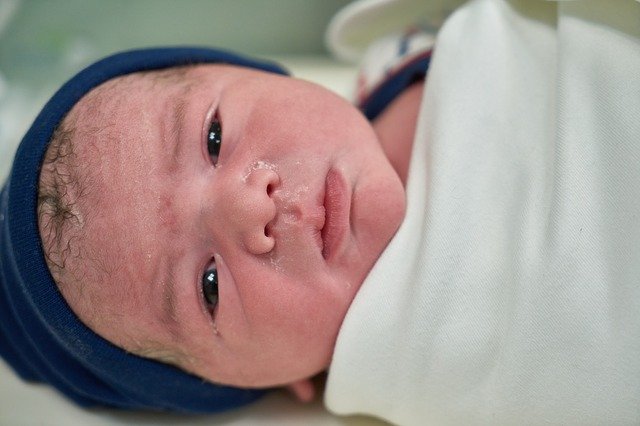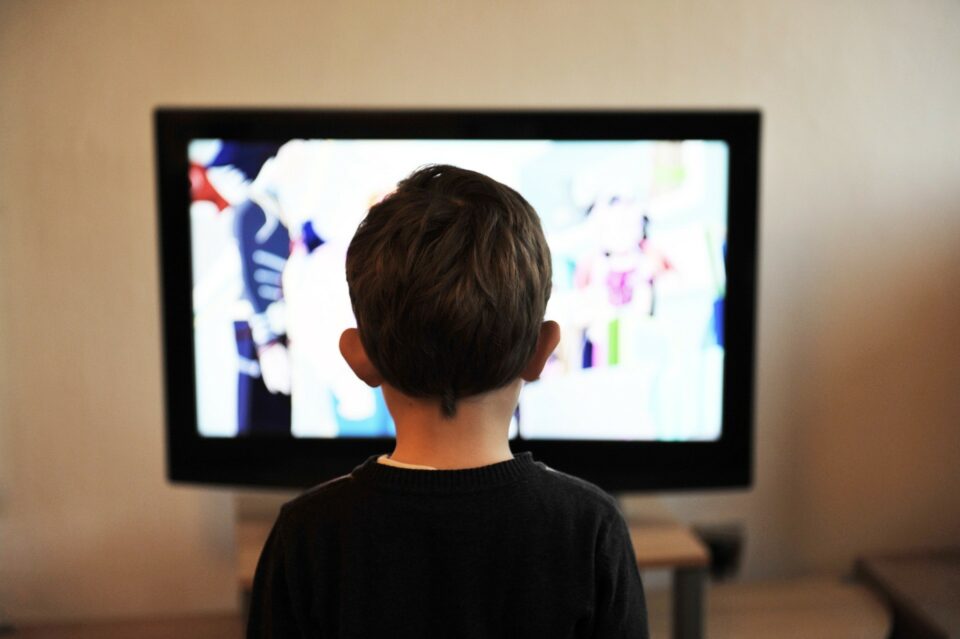Allergies are very common things, but that doesn’t mean you need your child being open to every single allergy that may come their way. Whilst some may not bother them at all, others may cause a reaction that is serious or at least troubling.
For that reason, learning how to boost their immune system and therefore protect against allergies and illness is vital.
What is an Allergy?
When you have an allergy to something, your immune system reacts when it comes into contact with that particular thing. For instance, someone with hay fever has an allergy to tree pollen and when they come into contact with that pollen, their immune systems reacts, causing the symptoms such as sneezing, runny and red eyes, etc. Most allergies are harness but some can be severe enough to cause a reaction that could be threatening to life. This is likely to be the case with food allergies, and in the worse cases this can lead to anaphylaxis.
The reaction is very clear, but the thing which causes the section is called the allergen. So, things like pollen, dust, medicines, and certain types of foods.
Allergies are extremely common and most people have at least one. However, children tend to be more susceptible to these allergies and studies have shown that immune deficiencies can increase the chances of a reaction.
What Happens During an Allergic Reaction?
When your child comes into contact with an allergen, their immune system overreacts to the threat. It senses trouble and treats the allergen as an imposter. This is what causes the symptoms associated with a particular allergy, e.g. sneezing, itching, shortness of breath.
However, whilst overreacting to the threat, your immune system also senses that it needs to fight the issue too, so it produces the IgE antibody. This allows histamine (a chemical) to released into the bloodstream and therefore fight the invader. It is the release of histamine which causes the symptoms of the allergy. This can be mild, moderate, or extremely severe.
Common allergens include:
- Dust
- Pollen
- Mould
- Pet hair and dander
- Cockroaches – studies have shown that high concentrations of cockroaches can increase the effects in children who suffer from asthma
- Food allergies, such as cow’s milk, shellfish, peanuts, wheat, soy, eggs, and nuts
How to Boost Your Child’s Immune System
By boosting your child’s immune system you strengthen it against anything which comes its way. This doesn’t only mean illnesses and bugs, but also against allergens too. Of course, it also means you need to identify the particular allergens that affect your child in particular.
It’s a good idea to keep a diary of your child’s allergy symptoms. If you’re at all concerned, speak to your doctor and get extra advice. In some case allergies, with repeated exposure, can be very dangerous and some children need to carry epipens to protect against severe reactions. Whilst this situation is rare, it isn’t something you should risk, so if you’re at all concerned, speak to your doctor and give them back up information in the form of an allergy diary.
However, there are things you can do in general to give their immune system a boost and the good news is that most of them are pretty simple too.
Focus on a Healthy Balanced Diet
Your child’s immune system is nourished by the food they eat and damaged by the unhealthy items they put into their body. With that in mind, you need to focus on feeding them a range of fresh fruits and vegetables, and opting towards organic produce as much as possible.
Non-organic produce contains preservatives and other items which could cause allergies to rear up in children. Several studies have shown that certain pesticides that are often used on non-organic produce can worsen food allergies, so avoiding such possibilities is always the best option.
Items which contain phytonutrients are very beneficial to your child’s health and immune system. These are common found in strawberries, oranges, green beans and carrots and if you go organic, you’re getting the freshest, and cleanest option. Try and work towards 5 servings of fresh fruits and vegetables daily, and be as creative as possible!
Make Sure Your Child Gets Enough Rest
The immune system takes a battering when an adult is sleep deprived and even more so when it’s a child. This can make your child more open to illness and weakening your immune system increases the chances of allergies causing problems.
The amount of sleep your child needs depends up on their age. Toddler-aged children need between 11-14 hours of sleep a day, and preschool children need between 10-13 hours. Focusing on ensuring that you child gets what they need is important and that means setting a healthy and regular sleep routine.
Choose to Breastfeed
Whilst not every woman chooses to do so, or is able to do so, if you are about to have a baby or you just have, choosing to breastfeed can be very beneficial for your child’s immune system. Studies have long argued that breastfeeding for longer can help to boost immune performance and reduce allergies. There are countless benefits to breastfeeding and these are well documented however in terms of your baby’s immune system, this is a very positive thing to do.
Of course, if your child is older than newborn, starting breastfeeding is not going to be an issue. This is simply something to consider for mothers to be, or those who may be undecided about how they may want to feed their baby when they’re born.
Focus on Exercise
Children spend a lot of time sitting down in front of computers and TVs these days and it does nothing for their health. Exercise is vital, and that means getting them outside, in plenty of fresh air, running around and getting all of that important exercise. Encouraging your child to exercise is easier if you do it as a family, because that way you’re acting as a role mode and it’s far more enjoyable.
Try bike riding, playing football, playing tennis, hiking, swimming, and anything else which gets their body moving and general enjoyment coming their way. This sets them up for a healthier lifestyle in general but also boosts their immune system in the here and now.
Pay Attention to a Clean and Healthy Home
If you know that your child is allergic to a particular thing, make sure that there is none of it around. It sounds extremely simple, but you’d be surprised how easy it can be to accidentally present something into the home which your child may react to. If you know that your child suffers with hay fever, purchase an ioniser and make sure that during the summer months you clean the home regularly and do all you can to reduce their exposure to pollen.
Of course, a clean home is also the best way to avoid germs spreading around the house and therefore causing illness. You can’t guarantee that your child is never going to become ill, because of course they’re going to pick up bugs at school, but you don’t want to add to the risk. That means making sure that you teach your child about hand washing. This is particularly important when they start school. Show them what to do and get them to practice, ensuring that they regularly wash their hands at home, before and after meals, after they’ve been to the toilet, etc.
Teach your child about how to handle any pets, about blowing their nose and throwing away the tissue, and any other situations in which hygiene becomes an issue.
Help Your Child Understand Their Allergies
Whilst this won’t help them to avoid allergies, it will help them to be educated about what may cause them to have an allergic reaction, especially if it is a food allergy. Make sure that your child’s school is aware of any specific allergies that your child has, but also make sure that your child is aware too.
When you have this conversation, make sure you do it in a careful and fear-free way. You don’t want your child to become terrified of being anywhere near peanuts, you simply need them to understand that they can’t eat them because it will make them a little stick. Whatever the allergy is, and as soon as your child is old enough to understand, talk to them about it and help them to understand that this is just something they need to avoid.
Is it Possible to Cure an Allergy?
No, it’s not but you can be aware of the allergen and avoid it, or at least minimise exposure to it. Some children actually grow out of some allergies, but not all. It really depends on what the allergy is. It is never a good idea to try and find out if your child has yet grown out of a specific allergy because some reactions can be severe. In that case, you could be putting your child at severe risk of anaphylaxis. It’s far better to continue with the measures you’ve already put in place and allow them to live a risk-free life.
However, in some cases it’s possible to just outgrow an allergy and for it to no longer affect you. Many people outgrow hay fever, as one example. In that case, it means that your body has learnt how to tolerate the specific allergen and it reacts in a less troublesome way. This reduces the symptoms that they would normally have, e.g. sniffly nose, sneezing, and itchy eyes.
Learning to deal with allergies is about knowledge and that’s something you will learn throughout your child’s early years. If something regularly causes them to be sniffly and sneezy, the chances are they have an allergy to whatever is causing it.
Boosting a child’s immune system is never a bad thing, whether they have allergies or not. This means that they will be able to handle illness in a far less troublesome way and in many cases, avoid it altogether. Whilst this won’t always be the cases as some bugs will probably come and cause them to be sick at some time, the duration of the illness may be shorter due to them having a stronger immune system.
What to do if an Allergy is Severe
In some cases, an allergy is very severe and hard to control. In this case, your doctor will provide your child with medication to help control an allergic reaction when it happens. This is usually in the form of an epipen.
This is a small injectable device which is injected when an allergic reaction occurs. Epinephrine is then released into the body and it quickly reduces anaphylaxis, which if left to progress can be life-threatening. If your child has a severe allergy, they will need to carry this device with them at all times and you will need to inform their school of their allergy and what to do in the event of a reaction occurring.
Of course, it’s also important to help your child understand what they need the device for and what it can do for them. This is a difficult conversation to have, but as before, doing so in a way which doesn’t scare them is important.
Final Thoughts
Allergies are very common and most people have at least one thing they’re slightly allergic to. For children, allergies often cause mild symptoms but in the case of food allergies, the reaction can be severe. Boosting the immune system through health and wellbeing measures means that their system is more able to cope with the rigours of life, as well as any germs and bacteria which may come their way generally.
The fact that an allergic reaction occurs as part of the immune systems means that it stands to good reason that strengthening it, is the key to helping to control it.




